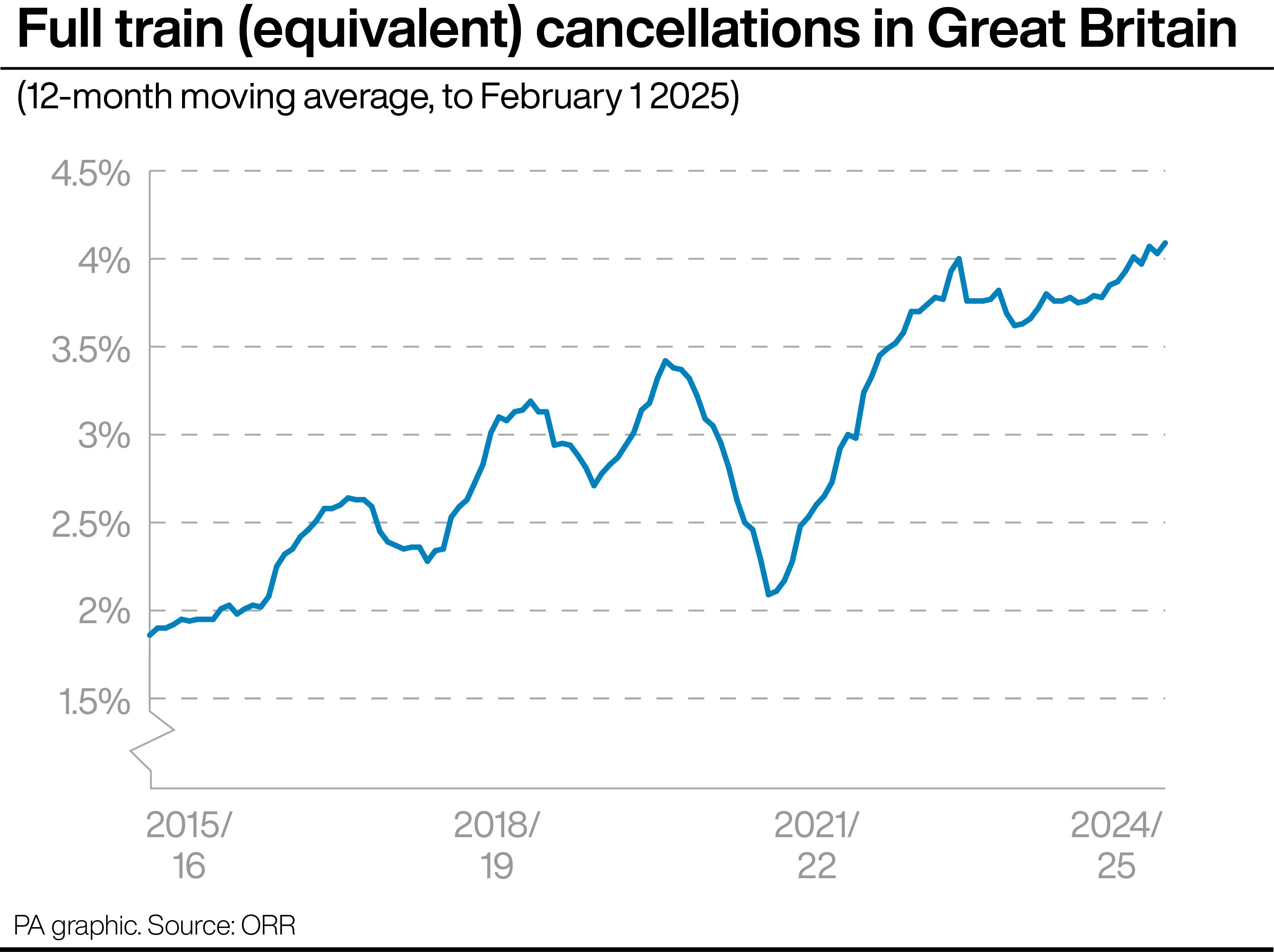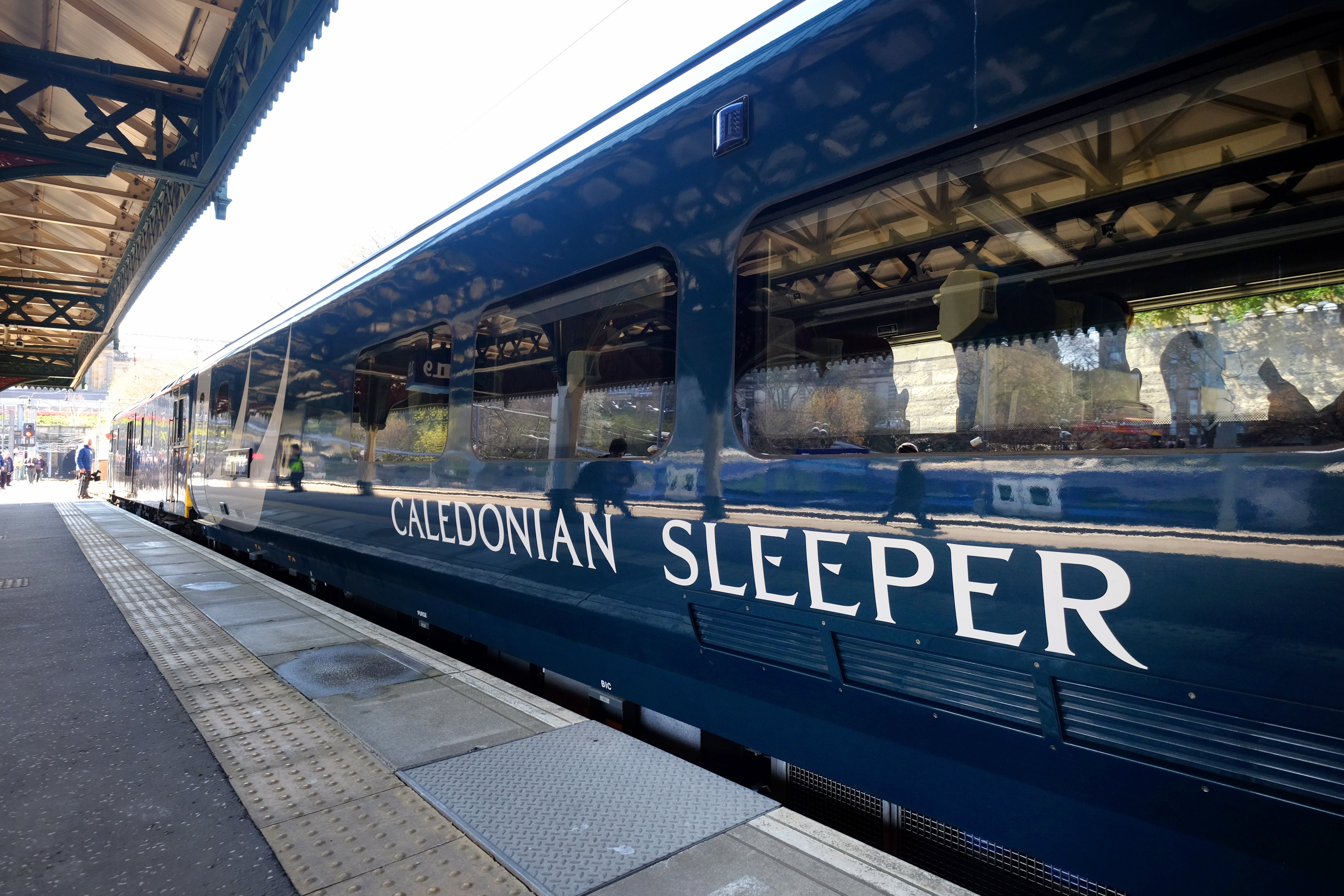Britain's railway system is facing unprecedented challenges, with reliability plummeting to a new low.
Over the past year, more than one in 25 train services have been cancelled, according to an analysis of recent data from the Office of Rail and Road (ORR).
The figures reveal that over 217,000 services were completely axed in the year leading up to February 1.
In addition, 165,000 services were partially cancelled, failing to stop at all scheduled destinations.
The rail industry's cancellation score, which counts full cancellations as one and part-cancellations as half, indicates that 4.09 per cent of 7.3 million planned trains were cancelled during this period.
This marks the worst reliability performance in the figures, which date back March 2015 – when the annual cancellation score was just 1.86 per cent.
The current crisis is attributed to industrial disputes and staff shortages, which have severely impacted the rail network's ability to maintain its schedule.
Rail expert Tony Miles from Modern Railways magazine has pointed to a combination of industrial disputes and staff shortages as the reason behind a high number of rail cancellations.
Mr Miles said that operators like Northern are experiencing particularly poor reliability on Sundays due to their reliance on train crews working paid overtime, which some staff members are declining.
Mr Miles also cautioned that retirement rates within the rail industry are exceeding expectations. A significant number of employees are choosing to retire as soon as they reach their pension contribution limits, he said

“Somebody can give three months’ notice to leave, but they may take 12-15 months to replace, and that’s still something the industry is trying to catch up on,” Mr Miles said.
He claimed that resolving this would involve the Government “looking again at whether significant recruitment should be allowed, to do away with the need for overtime and rest day working”.
But he expressed doubts that the Treasury is willing to spend money on “a massive recruitment exercise that won’t start to show benefits for five or 10 years”.
Over the past 12 months, reliability was particularly poor in the four weeks to December 7, when the network was affected by three named storms.
The operator with the highest cancellations score in the year to February 1 was CrossCountry at 7.36 per cent.
It has suffered disruption for a number of years, partly because of a driver training backlog and industrial action.
CrossCountry reduced its timetabled services between August 10 and November 9 2024 in an effort to limit on-the-day cancellations, and has been put on a remedial plan to improve its performance.
The operator is owned by Arriva, a subsidiary of US-based infrastructure investor I Squared Capital.
Avanti West Coast had the second highest cancellations score at 7.00 per cent, followed by Northern (5.97 per cent) and Govia Thameslink Railway (5.45 per cent).
The best performing operator was Caledonian Sleeper – which runs overnight services between London and Scotland – with a score of 1.11 per cent.

The figures do not include services removed from timetables as late as 10pm on the previous night – known as P-coding – which is done more by some operators than others.
A Department for Transport spokesperson said: “This Government has inherited a broken railway system, characterised by frustrating delays and levels of cancellation that have left people losing faith in our transport system.
“That is why we’ve kicked off the biggest overhaul of the railways in a generation, bringing services back into public ownership and putting passengers at the heart of everything we do.
“We have been clear we will not tolerate poor performance, and ministers continue to meet with leaders of the worst performing operators to address unacceptable services and demand immediate action.”
A spokesperson for the Rail Delivery Group, which represents train operators, said: “We know how important reliability and punctuality is to customers.
“The rail industry is working hard to maintain as many services as possible, but delays and cancellations can occur due to various factors like weather and flooding, industrial action, infrastructure issues such as track or signalling faults, train faults and external incidents such as trespass.”
A CrossCountry spokesperson said: “Over the last six months we have implemented a number of changes across the service that have reduced cancellations and improved punctuality.
“However, we recognise that there is more work to be done to ensure we consistently meet high service standards, improve performance and provide a more resilient service.
“We continue to work with the Department for Transport and Network Rail to deliver further improvements for our customers and the communities we serve.”







